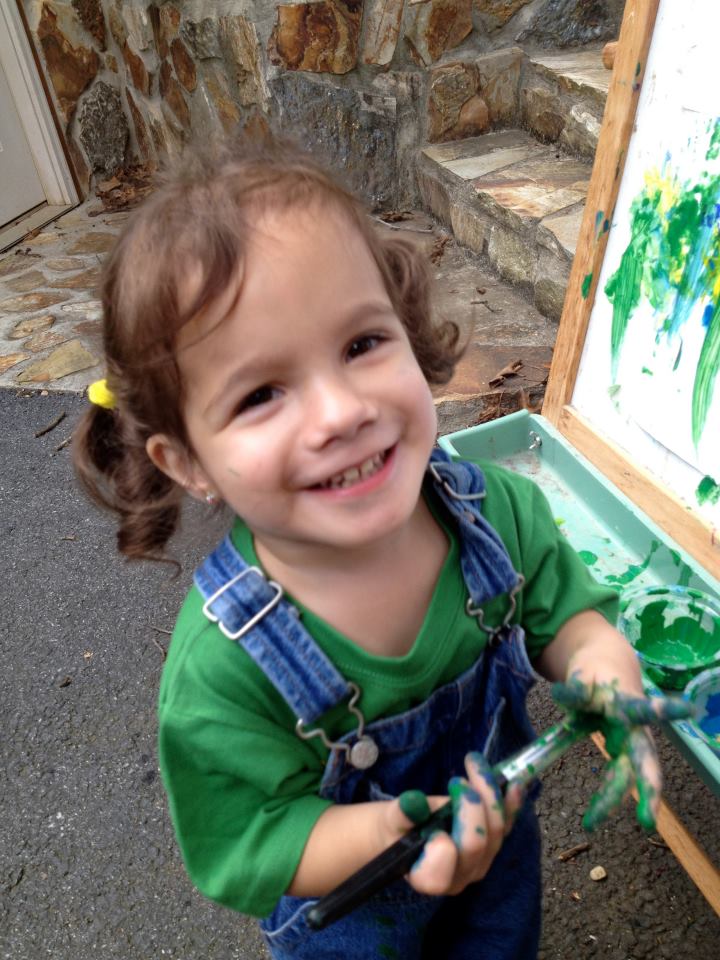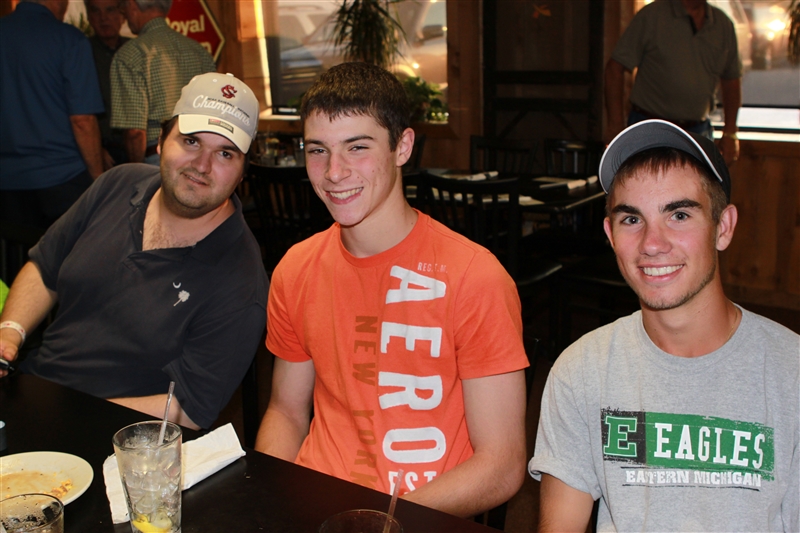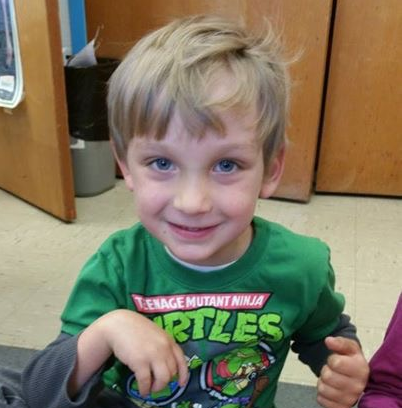We struggle to answer those sometimes rather unusual and often private questions from strangers, family and friends. Below we share some ways that parents of children with hemiplegia have handled these questions.
Parents Speak – Questions from Strangers
 Teach your child to respond to a stranger’s questions with a short, standard phrase. I kept prompting my son to answer, “I had a stroke before I was born” to any comment about his disability, starting at age 3. I think this is important because the child then takes ownership of their disability and relates it to the outside world on their own terms. The child does not pity himself, and the stranger can no longer pity the child because it is just an open fact that is no longer of consequence except for further clarification or curiosity. The brief, planned response may seem rather mechanical and awkward at first, but I think it builds it empowers our kids. – Therese
Teach your child to respond to a stranger’s questions with a short, standard phrase. I kept prompting my son to answer, “I had a stroke before I was born” to any comment about his disability, starting at age 3. I think this is important because the child then takes ownership of their disability and relates it to the outside world on their own terms. The child does not pity himself, and the stranger can no longer pity the child because it is just an open fact that is no longer of consequence except for further clarification or curiosity. The brief, planned response may seem rather mechanical and awkward at first, but I think it builds it empowers our kids. – Therese
I think it’s rather invasive for a stranger to ask me or my child about a medical condition. Some days I take the time to educate the stranger, but other days, I just either ignore them or say I have somewhere else to go and I walk away. – Joni
When trying to understand the comments made by strangers, I try to remember that people really don’t know what to say or do. Some of us are offended by certain remarks and others are not. This adds to the utter confusion of the general population in regards to what to do or say and it often leads to people who are afraid to say or do anything, which is, in my opinion, worse.
I’ve noticed that the age of the person seems to make a difference in how people perceive those with disabilties. Not too long ago, children with disabilities were hidden or sent to state institutions. Most older people did not grow up around other people with disabilities. They possibly saw Jerry’s kids marathons on tv and maybe saw a “cripple” from a distance, but they sure did not go to school with them. Kids with disabilities were to be pitied. So, they really don’t know what to say. Even at my church, the priest keeps patting my friend, who is in a wheelchair with cerebral palsy, on the head. She’s 50 years old, college educated and a mother. Despite my sending him a memo not to do that, he did it again. Luckily, our kids are more integrated into society than in the past. Other kids grow up with them and aren’t afraid to play with them or ask them questions.
Parents Speak – In the Classroom
People stare because there is something different and talk about things that they don’t understand. I like the idea of giving the other kids in the class a “good long look” and even get to try on the AFOs and other devices that outwardly make the child look different. This will make it easier for the kids in the class to ask questions politely. – Janie
If your child can, you might consider letting her do a presentation on her level, since that is probably the same level as the other kids. As a part of the presentation, have your child put something (or two) in that makes her the SAME as the other kids, like “I like to bake cookies with my mom” or “I learned to swim this summer” to show the other kids that they are all different. – Tedda
If you can meet with the teacher, why not ask her to get all the students in the class to briefly talk about what makes them the same and what makes them different? (like show and tell) This would also foster conversation and make the members of the class recognize that they, too, have differences. This way, too, your child wouldn’t be singled out. – Janet
Brainstorm with your child all of the things that are cool about hemiplegia-like some great adaptation that would take the other kids two hands that only uses one for them. Remember that your child has most likely developed some pretty amazing talents through all of this. – Jennifer
Parents Speak – Grandparents
I’ve often had problems with my mom-in-law always giving advice, showing up at doctor’s appointments for my son and asking so many questions that the doctors finally started making her wait in the waiting room (thank goodness!!). I did not find a way to tell my mom-in-law to back off without being rude. I tried for two years. I was at the end of my rope with her. I could be polite no more.
It was so frustrating. I felt like she thought I was not capable of taking care of my son. I finally told her that “I understood she had raised several children. I understood she just wanted to help. I understood her heart was in the right place. But she had crossed the line of concern and jumped right on over into annoying. And she now had two choices. She could take a backseat where my children were concerned and only give advice when it was asked for or she would be put on a need-to-know basis only. And I felt she didn’t need to know much.
After our conversation I didn’t hear from her for a week (and boy it was WONDERFUL) and then she called nice and cheerful like nothing had happened. She told me that she was sorry and would keep her mouth shut and butt out until further notice. I still have to remind her every now and then, but it is wonderful to go and visit without getting a headache! – Anonymous
More on Grandparents
I appreciate that my mother-in-law loves and is concerned for my daughter, and it is important to me that my daughter have loving relationships with her grandparents, and my husband and I work hard on this.
My husband and I are concentrating on our daughter, not just the hemiplegia, but her overall well being and growth as a wonderful human being. We do not feel that the negative energy my mother-in-law generates on this topic is necessary, or even healthy, so we have asked her to try to let go of the issue. For example, we invited her last night to come watch my daughter’s waterbabies class at the Y. She had to be reminded by my husband that she was there simply as a grandmother watching her granddaughter enjoy “swimming.” Yes, there is therapeutic value in the class (which is why we signed up), but waterbabies is also for fun and to learn to appreciate the water. Once that reminder sank in, everyone had a great time, which was the whole purpose of the invitation.
Yes, my daughter has hemiplegia, and that may well prove to be somewhat limiting to her in the future, but first and foremost, she is a gift with which we have all been truly blessed. Who is to say what will and will not be accomplished by her, or any of our kids, in the future? I consider my daughter’s potential to be every bit as great as any other child’s, and I refuse to let anyone try to put limits on her for any reason. – Anonymous
From a Child’s View
I just wanted to share briefly about my son Joel, who is going to be a BIG BOY soon (age 6 years). Prior to his leg surgery he would walk on his toes on his left leg. When we went to the playground or park some other kid would usually ask about his way of walking…and he would calmly reply…”oh that’s cuz I’ve got cerbal palsy and epilepsy….otherwise I am pretty normal. It just makes my leg walk funny” !!! What a kid. – Tana
My 10 year old daughter hasn’t had many problems with people asking her why she has a slight limp or can’t run as fast as others. If they do ask, she will usually say, “I had a stroke when I was in Mommy’s tummy.” – Angel











